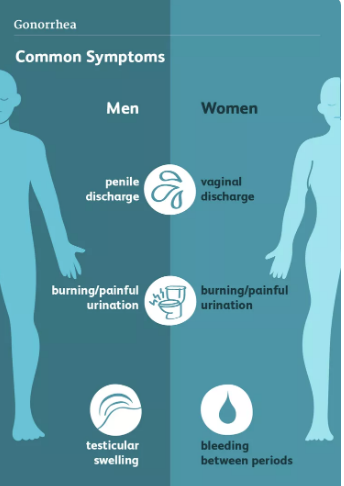Experts have decried what they consider a rise in cases of sexually-transmitted diseases such as chlamydia, gonorrhea and syphilis.
They warn that the rising cases of the STDs might be due to suspected reduction in condom use or outright lack of sex education.
U.S. health officials released data Tuesday showing how chlamydia, gonorrhea and syphilis cases have been accelerating, but doctors are hoping an old drug will help fight the sexually transmitted infections.
Experts believe STDs have been rising because of declining condom use, inadequate sex education and reduced testing during the COVID-19 pandemic.
Millions of Americans are infected each year. Rates are highest in men who have sex with men, and among Black and Hispanic Americans and Native Americans.
“Sexually transmitted infections are an enormous, low-priority public health problem. And they’ve been a low-priority problem for decades, in spite of the fact that they are the most commonly reported kind of infectious disease,” said Dr. John M. Douglas Jr., a retired health official who lectures at the Colorado School of Public Health.
STD cases are highest in men who have sex with men
To try to turn the tide, many doctors see promise in doxycycline, a cheap antibiotic that has been sold for more than 50 years.
The Centers for Disease Control and Prevention is drafting recommendations for using it as a kind of morning-after pill for preventing STDs, said Dr. Leandro Mena, director of the agency’s STD prevention division.
The drug is already used to treat a range of infections. A study published last week in the New England Journal of Medicine showed its potential to prevent sexually transmitted infections.
In the study, about 500 gay men, bisexual men and transgender women in Seattle and San Francisco with previous STD infections took one doxycycline pill within 72 hours of unprotected sex.
Those who took the pills were about 90% less likely to get chlamydia, about 80% less likely to get syphilis, and more than 50% less likely to get gonorrhea compared with people who did not take the pills after sex, the researchers found.
The study was led by researchers at the University of California, San Francisco and built on a similar French study that saw promise in the idea.
“We do need new approaches, new innovations” to help bring sexually transmitted infections under control, said Dr. Philip Andrew Chan, who is consulting with the CDC on the doxycycline recommendations.
Mena, of the CDC, said there is no sign the STD trend is slowing.
Using an antibiotic to prevent these kinds of infections won’t “be a magic bullet. but it will be another tool,” said Chan, who teaches at Brown University and is chief medical officer of Open Door Health, a health center for gay, lesbian and transgender patients in Providence, Rhode Island.
Experts noted the CDC will have many factors to weigh as it develops the recommendations.
Among them: The drug can cause side effects like stomach problems and rashes after sun exposure. Some research has found it ineffective in heterosexual women. And widespread use of doxycycline as a preventive measure could contribute to mutations that make bacteria impervious to the drug, as has happened with antibiotics before.


